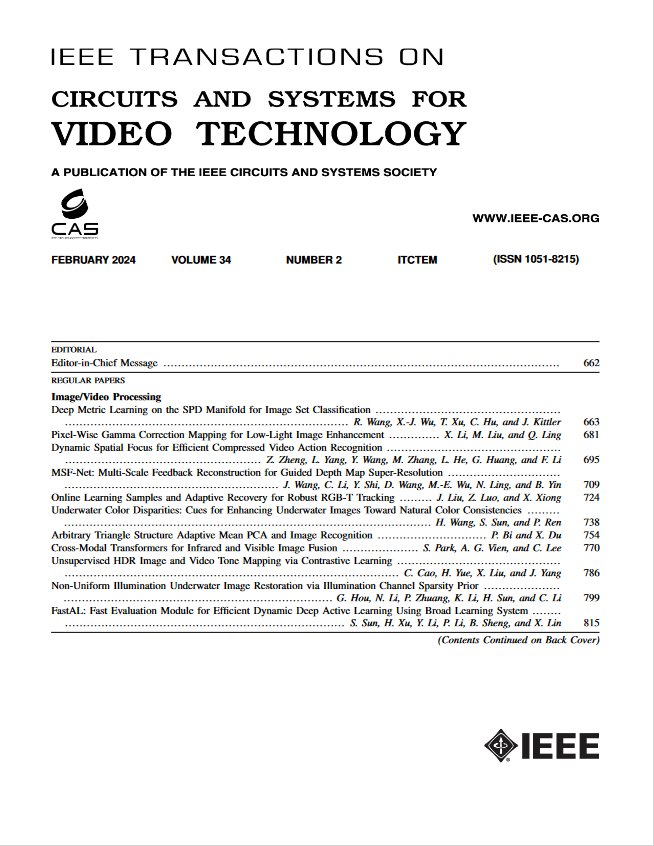Perceptual Depth Quality Assessment of Stereoscopic Omnidirectional Images
IF 8.3
1区 工程技术
Q1 ENGINEERING, ELECTRICAL & ELECTRONIC
IEEE Transactions on Circuits and Systems for Video Technology
Pub Date : 2024-08-26
DOI:10.1109/TCSVT.2024.3449696
引用次数: 0
Abstract
Depth perception plays an essential role in the viewer experience for immersive virtual reality (VR) visual environments. However, previous research investigations in the depth quality of 3D/stereoscopic images are rather limited, and in particular, are largely lacking for 3D viewing of 360-degree omnidirectional content. In this work, we make one of the first attempts to develop an objective quality assessment model named depth quality index (DQI) for efficient no-reference (NR) depth quality assessment of stereoscopic omnidirectional images. Motivated by the perceptual characteristics of the human visual system (HVS), the proposed DQI is built upon multi-color-channel, adaptive viewport selection, and interocular discrepancy features. Experimental results demonstrate that the proposed method outperforms state-of-the-art image quality assessment (IQA) and depth quality assessment (DQA) approaches in predicting the perceptual depth quality when tested using both single-viewport and omnidirectional stereoscopic image databases. Furthermore, we demonstrate that combining the proposed depth quality model with existing IQA methods significantly boosts the performance in predicting the overall quality of 3D omnidirectional images.立体全向图像的深度感知质量评估
深度感知在沉浸式虚拟现实(VR)视觉环境的观看体验中起着至关重要的作用。然而,以往对3D/立体图像深度质量的研究相当有限,特别是对360度全方位内容的3D观看的研究非常缺乏。在这项工作中,我们首次尝试建立一个客观的质量评估模型,即深度质量指数(DQI),用于立体全方位图像的无参考深度质量评估。基于人类视觉系统(HVS)的感知特性,提出了基于多颜色通道、自适应视口选择和眼间差异特征的DQI算法。实验结果表明,在单视口和全方位立体图像数据库中,该方法在预测感知深度质量方面优于最先进的图像质量评估(IQA)和深度质量评估(DQA)方法。此外,我们证明了将所提出的深度质量模型与现有的IQA方法相结合,可以显著提高3D全向图像的整体质量预测性能。
本文章由计算机程序翻译,如有差异,请以英文原文为准。
求助全文
约1分钟内获得全文
求助全文
来源期刊
CiteScore
13.80
自引率
27.40%
发文量
660
审稿时长
5 months
期刊介绍:
The IEEE Transactions on Circuits and Systems for Video Technology (TCSVT) is dedicated to covering all aspects of video technologies from a circuits and systems perspective. We encourage submissions of general, theoretical, and application-oriented papers related to image and video acquisition, representation, presentation, and display. Additionally, we welcome contributions in areas such as processing, filtering, and transforms; analysis and synthesis; learning and understanding; compression, transmission, communication, and networking; as well as storage, retrieval, indexing, and search. Furthermore, papers focusing on hardware and software design and implementation are highly valued. Join us in advancing the field of video technology through innovative research and insights.

 求助内容:
求助内容: 应助结果提醒方式:
应助结果提醒方式:


